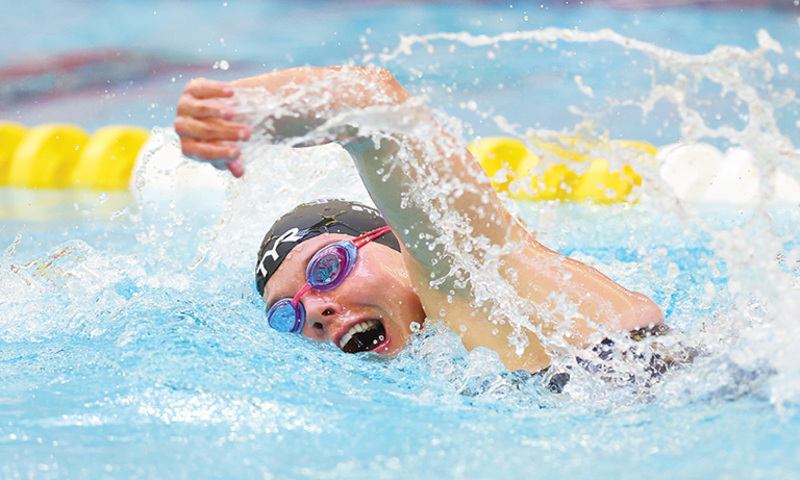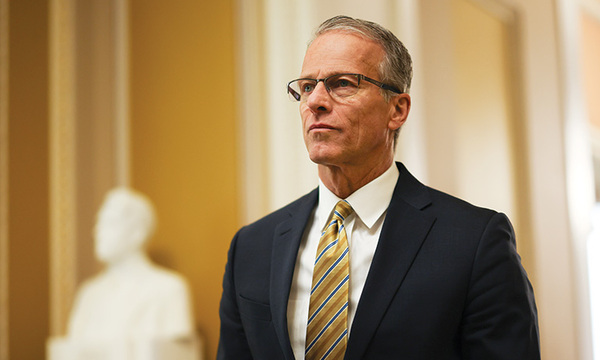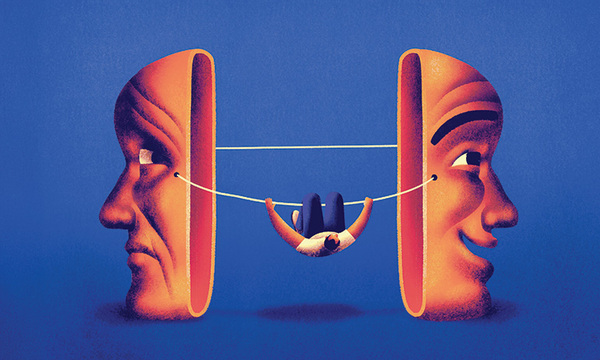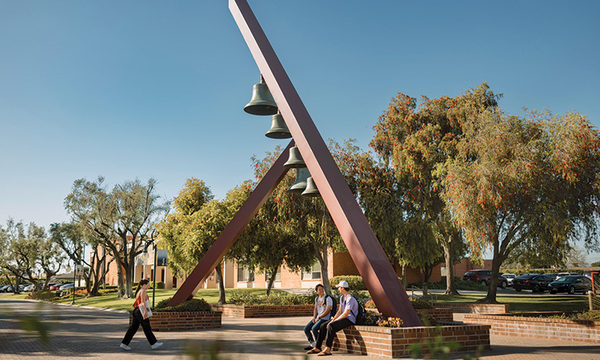Morgan Stickneyâs happy place has always been the deep end of a swimming pool. By the time she was 13, Morgan was ranked among the top 20 distance swimmers in the nation and had her sights set on the Olympics. When a rare vascular condition left her a double amputee, that dream seemed dead in the water. But while the disease stole her legs, it could not steal Morgan Stickneyâs competitive spirit or drown her unshakeable faith.
A native of Bedford, New Hampshire, Morgan enrolled in Biola as a freshman in 2016.
An elite swimmer with dreams of becoming a doctor, she had been searching for a Christian university with outstanding academics where she could continue to swim competitively. A scholarship and a spot on the swim team made Biola the perfect fit.
âI loved Biola from the first time I set foot on the campus,â Morgan recalls.
Morgan was practicing with the swim team when she kicked the wall during a flip turn and broke her left foot. That practice would be the last time she ever swam with two legs. What first appeared to be a temporary setback became a major medical issue when her foot failed to heal. For months, Morgan endured constant, excruciating pain, dulled only by strong opioids that left her in a fog. She recalls struggling to focus on a chemistry exam, finally scribbling a note to the teacher on her paper that read, âIâm too high on pain medications to take this test.â
âI was a biology major on a pre-med track, so I was studying an immense amount,â Morgan recalls. âBut because of the pain meds, the next morning, I couldnât remember anything Iâd learned. The pain was stopping me from living my life.â
After two years of agony and recurring infections from âbones that were like marshmallowsâ coupled with dozens of failed medical procedures, Morgan was left with only one option. In May of 2018, her left leg was amputated below the knee. âIt was brutal,â says Morganâs father, Tony Stickney, who had been driving his daughter to swim practices and cheering her on at meets since she was a little girl. âIt looked like everything weâd dreamed for her was over.â
But the pain was also over.
âI remember waking up after the amputation and thinking, âWow. I donât feel any pain.â It was a really powerful moment,â Morgan says. âSeven days later, I was off all the opioids Iâd been on for years. It had never been an addiction I was going through, it had just been suffering.â
Three months after her leg was amputated, Morgan was swimming again.
âThe pool had always been my happy place,â Morgan says. âI hadnât been able to swim for two years because of the constant risk of infection in my foot. The first time I got back in, I couldnât stop smiling.â
Six months after the amputation, Morgan competed in the 2018 National Para Swimming Championships, winning the 400-meter freestyle and 100-meter freestyle. Following the nationals, she was invited to train at the Olympic Training Center in Colorado, with an eye toward qualifying for the 2020 U.S. Paralympics Swimming team that would compete in Tokyo.
âAfter all the trauma and heartache I had been through, I was swimming again,â Morgan says. âI had goals again. Everything else just disappeared.â
Morgan reported to Colorado for training ready to swim her way to Tokyo.
âThen I stepped out of the cold tub after an intense training session, hopped three steps to get my prosthetic leg, and my right foot shattered.â
Instead of training for the Paralympics, Stickney returned home to New Hampshire and began another yet another grueling medical journey. Following a battery of tests, procedures and consultations with doctors around the country, specialists eventually diagnosed Stickney with a rare vascular disease that affected the circulation in her extremities and led to bone and tissue death â a condition so rare, it did not even have a name.
âIt was a relief to finally have a diagnosis,â Stickney says. âBut at the same time, it was horrible. I knew another amputation was coming.â
In October of 2019, Stickneyâs remaining leg was amputated below the knee.
âAll you can do is pray to God and ask for guidance,â Tony says. âWho has a child who was an elite athlete on her way to the Olympics, and less than a year later she has no legs? How do you accept that? Morgan had such high hopes for para swimming. Now, she thought swimming was over. I did, too.â
âI was convinced to my core that I would never get back in the water. I mean, how can you swim without legs?â Morgan says. âI was at Spaulding Rehabilitation Hospital in Massachusetts, learning how to walk again, when my doctor suggested I get in the pool.â
âThey had a physical therapist get in the pool with Morgan to hold her up and be sure she didnât drown,â Tony Stickney says. âMorgan got in the pool and immediately started racing the therapist, diving and swimming around. My daughter had always been one of the most joyful people Iâve ever known. In that pool at Spaulding, I saw Morganâs joy come back.â
âOnce they got me in the pool, they couldnât get me out of the pool,â Morgan says. âThe week after I learned how to walk on two prosthetic legs, the Covid-19 pandemic shut down the world, and the Paralympics were moved from 2020 to 2021. At that point, I believed I actually still had a shot at making the team.â
Going for the Gold
With swimming pools and training facilities closed during the pandemic lockdown, Stickney put out a desperate plea on social media. Her prayers were answered when a stranger in her hometown offered the use of his outdoor, heated pool for training.
âThis was New England in March,â Tony says. âI would sit in a foldout chair in the snow with a stopwatch while Morgan trained in this manâs pool and his kids watched through the window.â
Realizing she would need intense, professional training to make Team USA, Morgan began researching coaches nationwide. She and Tony traveled to North Carolina to meet with John Payne, a renowned swimming coach based at the Triangle Aquatic Center near Raleigh. Payne had experience coaching elite swimmers, but Morgan was his first athlete with a disability.
âWe spent several days training together,â Payne says. âI wanted to make sure I could help her move forward. In just a few days, we saw significant improvements.â
Confident that Payne was the coach Morgan needed, the Stickneys went all in, selling Tonyâs business and the family home and relocating to North Carolina.
Their commitment and Morganâs hard work paid off. Less than two years after her second amputation, Morgan made the U.S. Paralympics Swimming team.
âIt was one of the best feelings in the world,â Morgan says. âIt was just so cool to know that I would get to represent my country at the Paralympic Games, where the best disabled athletes are competing to show the world what they can do.â
Due to Covid-19 restrictions, Morganâs family was not able to accompany her to Tokyo. Instead, Morganâs father, mother, stepfather and brother watched the games via livestream together at 4:30 a.m. North Carolina time. A highlight was the 400-meter freestyle, which came down to a nail-biting finish between Morgan and her teammate in the next lane, Jessica Long, also a bilateral amputee.
Long was in the lead for most of the race, with Morgan a sometimes-distant second. But as the race progressed, Morgan closed the gap. With just 25 meters remaining, Morgan surged ahead to touch the wall and claim the gold medal.
âI was screaming in our living room,â Tony says. âA year ago I was sitting in the snow with a stopwatch, watching my daughter trying so hard, and one year later, Iâm watching her win a gold medal. It was amazing.â
Alone on his sofa in the quiet of the pre-dawn, Coach John Payne was also watching the race.
âMorgan and I had spent a lot of quiet early mornings training together, so that felt right,â Payne says. âWhen she won the gold, I was so happy for her. I remember saying out loud, âGood for you, Morgan. You did it. Good for you.ââ¶Ä
Morgan also brought home gold in the womenâs 4x100-meter relay, where she swam in the all-important anchor position and took Team USA from fourth place to the top of the podium.
So many people in this world live with a disability, and we work just as hard, if not harder, than able-bodied athletes, because we have so much to overcome with our disabilities every day. I mean, I canât even get out of bed without putting my prosthetics on, yet I won two gold medals,â Morgan says. âI think itâs so cool that the Paralympics exist to show the world what people with disabilities can do.â
Sheâll Always Have Paris
Morgan returned to Paralympic competition at the 2024 games in Paris.
âIn Tokyo, I didnât really believe that I could win that 400-meter freestyle until I was standing on top of the podium. In Paris, my mindset was different. I was proud of myself for overcoming everything Iâd overcome. Looking at my own story, itâs pretty remarkable. Just to be there doing what I loved the most was a miracle.â
Morgan blew the competition out of the water in the 400-meter freestyle, not only taking home the gold, but also shattering the Paralympic world record for the event.
She also won the silver medal for the 100- meter freestyle, which was live streamed in Chase Gymnasium on Biolaâs campus.
Paris was even sweeter than Tokyo because this time, more than 20 family members and friends â including three of Morganâs doctors â were in the stands to cheer her on.
âIt was the best feeling, looking up there and seeing all of these people that had been with me and supported me on this journey,â Morgan says. âItâs been so difficult and theyâve truly seen me at my worst, but theyâve also seen me at my best. I wouldnât have been there without them.â
For Tony Stickney, Morganâs triumph in Paris will forever be one of the greatest moments of his life.
âWhen they played the national anthem, when I saw Morgan on the top of the podium with the American flag rising behind her, it was everything Iâd envisioned for her since she was 13 years old.â
The Lane Ahead
Now 27, Morgan is training for the 2025 World Para Swimming Championships in Singapore, followed by the 2028 Paralympic Games in Los Angeles.
Her most formidable competitor is not another swimmer. The same vascular disease that stole Morganâs legs is now threatening her arms. The disease also continues to affect her legs. Shortly after celebrating her victories in Paris, Morgan had another surgery â her 30th â to re-amputate inches more from what remained of her legs.
Morgan spends nine days out of every month â one-third of her daily life â in a Boston hospital receiving medical treatment designed to keep her merciless adversary at bay. The infusion treatment she receives is comparable to chemotherapy in terms of the severity of its side effects.
On day 10, Morgan flies home to North Carolina, and heads for the Triangle Aquatic Center to continue her rigorous training. âEvery single day that sheâs not in the hospital, Morgan is here giving 110%,â Coach Payne says.
âItâs challenging balancing training with spending this much time in the hospital, but thereâs not much I can do about it other than try to have a positive outlook and learn life lessons from what Iâve been through,â Morgan says. âThat doesnât mean I donât have bad days. I definitely have bad days. But I try to choose the positivity route instead of having pity for myself.â
âI donât think thereâs an athlete in any sport, anywhere, who has to go through as much as Morgan does,â Tony Stickney says. âYes, other athletes have injuries, and they have to work hard to recover, but for Morgan, itâs like Groundhog Day. Thereâs no end in sight. Itâs not natural for someone to suffer the way Morgan has suffered, then get up and do it again and again. There are no adjectives that can describe how proud I am of my daughter. Sheâs my inspiration.â
Morgan attributes her resiliency to her relationship with the Lord. When she struggles with sorrow, when sheâs exhausted from training, when she feels phantom pains in her missing legs at night, Morgan âputs in [her] Jesus music, and it makes everything else disappear.â
âWorship music is a huge connection to the Lord for me. The lyrics feel like a cry out to God. If Iâm not strong enough to pray to you right now, if I canât find the words, these words will be my ·ÉŽÇ°ù»ćČő.â
Morgan Stickneyâs faith has seen her through her journey from the depths of despair to the top of the podium. In her hardest and most pain-filled moments and in her most victorious seasons alike, Morgan is inspired by the lyrics of her favorite worship song, âPeace Be Still.â
I donât want to be afraid
Every time I feel the waves
Peace be still
Say the word and I will
Set my feet upon the sea
âTil Iâm dancing in the deep
Peace be still
You are here, so it is well.
Medal Count
- PARALYMPIC GAMES: 4 Golds, 1 Silver
- PARIS 2024 400-Meter Freestyle: Gold
- 100-Meter Freestyle: Silver
- TOKYO 2020 400-Meter Freestyle: Gold
- 4 x 100-Meter Medley Relay: Gold
- WORLD CHAMPIONSHIPS: 3 Golds, 1 Silver
- 2023 100-Meter Freestyle: Gold
- 2023 400-Meter Freestyle: Gold
- 2022 400-Meter Freestyle: Gold
- 2022 4x100-Meter Mixed Medley Relay: Silver
- 4 PARA SWIMMING WORLD RECORDS
- 200-Meter Freestyle
- 400-Meter Freestyle
- 800-Meter Freestyle
- 1,500-Meter Freestyle
Morgan Stickney broke the para swimming world record for the 1,500-meter freestyle at the 2023 Paralympics National Championship, the first time she swam the event as a double amputee.
A Proud Biola Grad
Through all of her surgeries, rehab and intense training schedule, Morgan Stickney never gave up her dream of earning a Biola degree, continuing to take courses online and earning a Bachelor of Science in Applied Psychology. In 2023, Morgan returned to the Biola campus for her graduation ceremony. âMorgan worked hard to navigate life â and the pool â without her lower legs,â President Barry Corey said at the commencement service. âHer courage, perseverance and deep faith in God have helped her persevere, compete and even complete her Biola degree.â
Photo credit: Michael Reaves / Getty Images
 À¶ĘźÊÓÆ”
À¶ĘźÊÓÆ”



